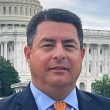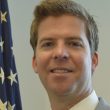McEwen must stay
Last month the editor of Urgent Communications, Glenn Bischoff, endorsed the leadership of Chief Harlin McEwen as chairman of the Public Safety Spectrum Trust (PSST). Bischoff pointed out that under unusually trying circumstances, McEwen has worked tirelessly to include first responders in the next generation of wireless broadband communications.
Recently, FCC Acting Chairman Michael Copps re-stated his commitment to solving the continued unacceptable condition of public-safety communications across the country.
I am stepping forward as a voice from within public safety to make sure McEwen is recognized as the most important advocate for first-responder communications and as such must remain at the helm of the PSST.
McEwen has been involved with nearly every aspect of the 700 MHz D Block proceeding since it commenced. As PSST chairman he has worked tirelessly with others from within and outside the PSST, juggling many complicated facets including politics, technology, business and organizational matters that have evolved since the PSST was named the nationwide licensee for the public-safety broadband spectrum. The knowledge gained during this complex proceeding is not achieved overnight, and McEwen’s experience cannot be replicated.
McEwen is liked and sometimes disliked for one simple reason — he’s an effective leader. Leadership at major U.S. telecom companies is backed by millions of dollars used to promote their agenda in the interest of their shareholders. Without those resources, McEwen still is effective for the PSST because of his vast knowledge and experience regarding public-safety communications, backed by the fact that his peers in public safety know his reputation as an uncompromised and effective advocate for their cause.
McEwen’s vision and passion for bringing state-of-the-art communications to first responders has helped the 700 MHz D Block concept come as far as it has today. And despite the voices in public safety looking out for their own parochial interests, ignoring the best chance for true nationwide interoperability on a uniform platform, public safety has never been as unified as it is today in terms of the FCC’s current proposal. And much of that is due to McEwen’s unwavering advocacy.
McEwen has taken an uncompromised approach to looking at the big picture with a vision toward a nationwide system that promises to change the paradigm by which public safety communicates today, transforming it into a platform that continues to evolve public-safety broadband applications in a way that is affordable and feasible. And while the naysayers — even within public safety — say it cannot be done, McEwen, in his trademark tireless and irrepressible manner, pushes on for public safety.
Some say that McEwen is intimidating. To that I say, thank goodness. Powerful, well-financed corporate interests are at play in Washington making certain that they get what they want. At the same time it’s refreshing to know that a counter-balancing advocate has a seat at the table making certain that the interests of public safety are represented — and that name tag should continue to belong to McEwen. His dedication to improving public-safety communications is without comparison. He has managed the interests of the PSST according to the FCC’s guidelines, and he remains the right person for the job.
Charles Werner is chief of the Charlottesville (Va.) Fire Department. He serves as SAFECOM Executive Committee chair and IAFC Technology Council chair, and he is a member of the NPSTC Governing Board.

















